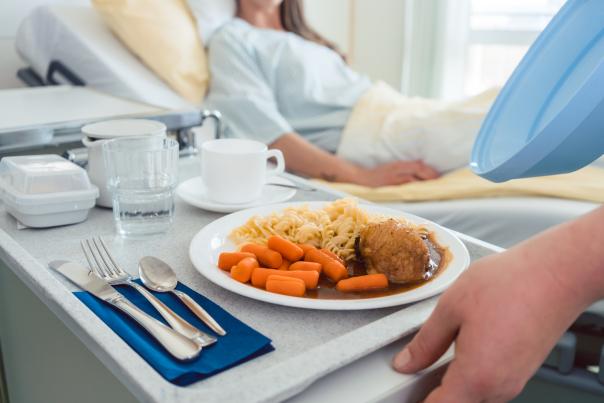
We’ve all had times where we’ve been unwell and not felt like eating, especially as a hospital inpatient, or when we have reached for unhealthy food when we are busy, tired or stressed at work. But a nutritious meal can have a profound impact both on our mental and physical health and on our ability to recover from illness or surgery.
The NHS is one of the largest providers of food and drink services in the country, providing over 199m meals a year for patients, staff and visitors, but we know that catering in hospitals is not always as good as it could be.
As part of the Independent Review of Hospital Food (2020), recommendations highlighted the need for updated food and drink standards to ensure that patients, staff and visitors have good quality, healthy, nutritious food options, wherever they are in the country.
That’s why we’ve worked with an expert panel of caterers, nurses, doctors, dietitians, and 20 exemplar Trusts to develop eight new National Standards of Hospital Food for patients, staff and visitors, that all NHS organisations will be legally required to meet as part of the NHS Standard Contract.
All organisations subject to the NHS Standard Contract must:
• Have a designated board director responsible for food (nutrition and safety) and report on compliance with the Healthcare Food and Drink Standards at Board Level as a standing agenda item
• Have a food and drink strategy
• Ensure they have access to appropriate catering dietetic advice and support
• Have a nominated food safety specialist
• Invest in a high calibre workforce, improved staffing and recognise the complex knowledge and skills required by chefs and food service teams in the provision of safe food and drink services
• Be able to demonstrate they have an established training matrix and a learning and development programme for all staff involved in healthcare food and drink services
• Put steps in place to monitor food waste, manage it and take action to reduce plate waste, production waste and unserved food
• Have suitable food and drink solutions for all staff over a 24/7 service period
These Standards mean NHS staff and patients will be able to access nutritious food and drink at any time of day and night, every day of the week. All NHS organisations will have access to dietetic expertise to better support patient recovery and general health.
They also include measures to ensure the quality, safety and sustainability of food provision, and reduction of food waste, to patients, staff and visitors across acute, mental health and community settings.
The standards aim to inspire and drive cultural change and reform within NHS organisations, embedding better hospital food into the life of the hospital with strong board-level leadership, so that food is prioritised and treated as an integral part of patient care and services for staff.
The great news is that around 60% of Trusts in England are already compliant with the standards or in a good position to be.